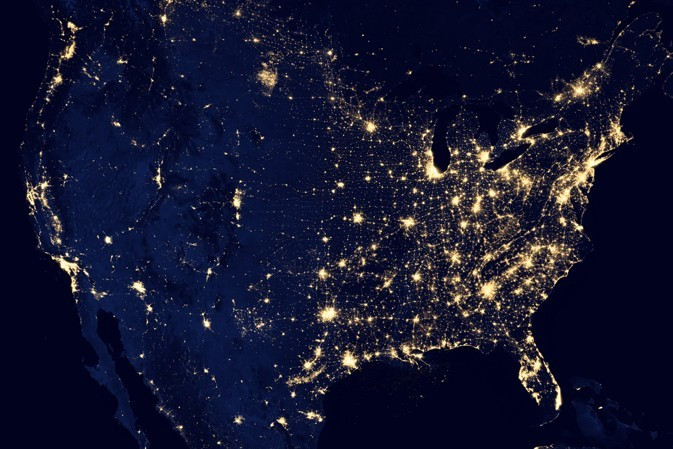Mankind on Road to Global Collapse, Warn Royal Society Scientists
Over-population, climate change, pollution, species extinction and over-consumption spell end of civilisation

The world may not have ended on 21 December, 2012, as foretold by the Mayan calendar, but civilization will almost certainly collapse in the not-so-distant future if changes are not made, scientists have warned.
Can a Collapse of Global Civilization be Avoided? was published in the Royal Society's journal Biological Sciences and looks at how the planet will cope with an increasing population that has declining resources.
The researchers note: "Virtually every past civilization has eventually undergone collapse." While some, such as the Egyptians, were able to recover, others, including the Mayans and the inhabitants of Easter Island, did not.
Billions more people are at risk than ever before, the researchers warn, as the world moves through a perfect storm of problems - over-population, climate change, human obesity, species extinction, acid oceans, nuclear war and overexploitation of natural resources.
Prince Charles described the problems facing humanity as "an act of suicide on a grand scale".
The authors said: "To support today's population of seven billion sustainably (ie, business as usual, including current technologies and standards of living) would require roughly half an additional planet. If all citizens of Earth consumed resources at the US level it would take four to five more Earths."
Immediate action is needed, they said - both through scientific intervention and social and economic change.
Nature will restructure civilization for us
The Royal Society team says the scientific community needs to develop sustainability. The biggest challenge, it said, is "convincing people [to] alter their behaviour relative to the basic population-consumption drivers of environmental deterioration".
"The industrial revolution set civilization on the road to collapse, spurring population growth, which contributed slightly more than overconsumption to environmental degradation. Now population combined with affluence growth may finish the job."
Discussing the end of civilization as we know it, the authors wrote: "Serious global environmental problems can only be solved and a collapse avoided with an unprecedented level of international cooperation.
"The time to start restructuring the international system is right now. If people do not do that, nature will restructure civilization for us."
Although collapse could be avoided this century, in the longer-term, mankind's downfall is inevitable. "Humanity has the assets to get the job done, but the odds of avoiding collapse seem small because the risks are clearly not obvious to most people."
They say the classic signs of impending collapse are "everywhere".
The study concludes: "But whether we or more optimistic observers are correct, our own ethical values compel us to think the benefits to those future generations are worth struggling for, to increase at least slightly the chances of avoiding a dissolution of today's global civilization as we know it."
© Copyright IBTimes 2025. All rights reserved.





















